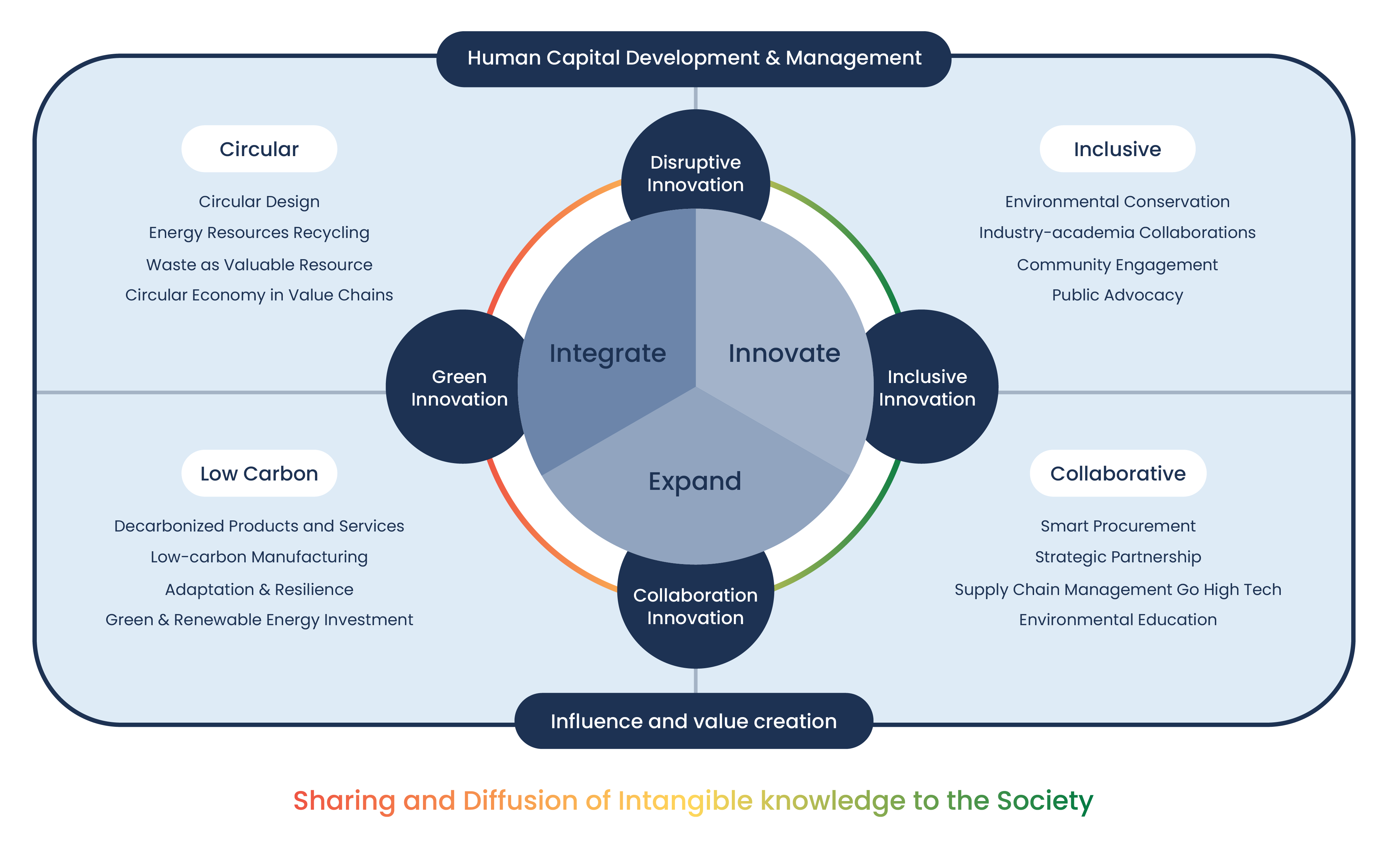Sustainability in Action, Powering Progress Together
Strategy-setting is the key to achieving long-term sustainability targets that tackle global climate challenges, uncertainties in the energy supply, and risks related to supply shortages of water, raw materials and other resources faced by businesses. To that end, ASEH has established four strategic sustainability pillars: Low Carbon, Circular,Inclusive and Collaborative, to help identify opportunities and growth drivers. We are committed to the creation of sustainable value and, to extending our strategic influence through external stakeholder communication and joint efforts with various interest groups to achieve a virtuous cycle of sustainability.




Other topics
Other topics
Supplier Sustainability Awards
Supplier Sustainability Awards
Talent Cultivation and Development
Talent Cultivation and Development
Intellectual Property Management
Unlocking innovation and safeguarding excellence
Social Involvement
Stimulate positive social change
Risk Management
Risk Management Policies and Procedures
Sustainable Supply Chain Management
Supplier Sustainability Management Approach
Organization & Structure
Fostering Organizational Excellence
Diversity in Human Resources
Diverse Talents, United Excellence
Climate Leadership
Transitioning towards Low-Carbon Resilience
Water Resource Management
Water Risk Assessment
Sustainable Manufacturing
Eco-Efficiency Through Sustainable Manufacturing
Conflict Minerals Compliance
Corporate Policy for Sourcing Conflict Minerals
Supply Chain Management Framework
Supply Chain Management Organization
Biodiversity
Promote the well-being of human and safeguarding our planet
Waste Management
Waste Generation and Recycling
Information Security Management
Information Security Policy, Organization and Targets
Environmental Conservation
Environmental Conservation
Business Conduct and Ethics
Good corporate citizenship and social responsibility
Smart Factories and Automation
Higher customer satisfaction in quality and delivery
Green Facility
Realizing the determination of green transition
Corporate Sustainability Policy
Pioneering Sustainability, Powering Tomorrow
Public Advocacy
Public Advocacy and Management Framework
Stakeholder Communication
Uniting Stakeholders for Impactful Change
Environmental Management System
Towards a Greener and Better Future
Succession Planning
Risk Management Policies and Procedures
Regulatory Compliance
Compliance at the Core: Upholding Laws, Guiding Principles
Human Rights Management
Committed to Human Rights, Sustainability, and Responsibility
Community Engagement
Community Engagement
Talent Attraction and Retention
Talent Recruitment
Occupational Health and Safety
Diverse Talents, United Excellence
SDGs & TIMM
Shaping Tomorrow's Value
Industry-Academia Collaborations
Industry-Academia Collaborations




